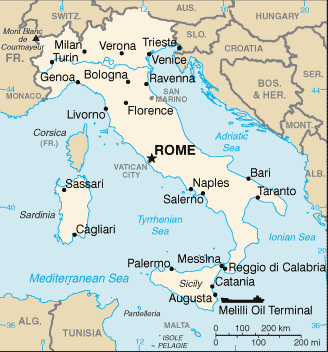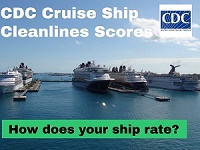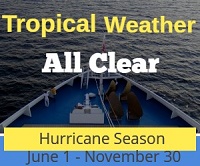Civitavecchia Cruise Ship Destination Port
Cruise Ship Port of Call information like Port News, Weather, Transportation Options, Things to Do and See, Area Events, Medical Care, Crime and Safety Review
Venice
Get to know our slice of Paradise - located on the SW Coast of Fl.
Attractions
Beaches
Canoe/Kayak
Boat Launches
Boat Charters
Fishing Charter
Fishing Piers
Historical Sites
Golf
Parks
Hotels
Relocate
Venice Map
Civitavecchia Weather
Personal Safety
Source: U.S. Department of State
Petty crimes such as pick-pocketing, theft from parked cars, and purse snatching are serious problems, especially in large cities. Pick-pockets sometimes dress like businessmen. You should not be lulled into a false sense of security by believing that well-dressed individuals are not potential pick-pockets or thieves. Most reported thefts occur at crowded tourist sites, on public buses or trains, or at the major railway stations: Rome's Termini; Milan's Centrale; Florence's Santa Maria Novella; and Naples' Centrale at Piazza Garibaldi.
Thieves in Italy often work in groups or pairs. Pairs of accomplices or groups of children are known to divert tourists' attention so that another can pick-pocket them. In one particular routine, one thief throws trash, waste, or ketchup at the victim; a second thief assists the victim in cleaning up the mess; and the third discreetly takes the victim's belongings.
The local equivalent to the “911” emergency line in Italy is 113.
Getting Around
Trains
Trains are available from Civitavecchia to the
Stazione Termini in Rome. Local currency will be required for the fare. For
more information inquire at: www.italiarail.com
Taxis
Limited taxis are available pierside and throughout Rome.
Confirm your fare with driver before departing.
Natural Hazards
Several major earthquake fault lines cross Italy. Principal Italian cities, with the exception of Naples, do not lie near these faults; however, smaller tourist towns, such as Assisi, do lie near faults, and have experienced earthquakes. An earthquake severely damaged the town of L’Aquila in 2009.
Italy also has several active volcanoes generating geothermal events. Mt. Etna, on the eastern tip of the island of Sicily, has been erupting intermittently since 2000. Mt. Vesuvius, located near Naples, is currently capped and not active. Activity at Mt. Vesuvius is monitored by an active seismic network and sensor system, and no recent seismic activity has been recorded. Two of Italy's smaller islands, Stromboli and Vulcano, in the Aeolian Islands north of Sicily, also have active volcanoes with lava flows.
ports > destinations > Civcitavecchia
Civitavecchia (Rome), Italy
Civitavecchia is a port city located about a 1.5 hour drive (50 miles) from Rome. The town center is located about 1.5 miles from the pier.
Rome is in the Lazio region of central Italy on the Tiber river. Although the city center is about 15 miles inland from the Tyrrhenian Sea, the city territory extends to the shore, where the south-western district of Ostia is located. Rome is the capital of Italy.
Civitavecchia Fort and Harbor
Port of Entry
Civitavecchia harbor is formed by two piers and a breakwater, on which is a lighthouse. The name Civitavecchia means "ancient town".
Port Authority Civitavecchia
Molo Vespucci
00053 Civitavecchia - Italy
Tel: +39 0766 366201
autorita@portidiroma.it+39
0766 366201
Webcam
Time Zone
GMT + 1 (EST + 6)
Map Coordinates
42°06'N, 11°48' E

Climate
The climate is characterized by warm to hot, dry summers and mild to cool, wet winters.
Shopping
Don’t buy counterfeit and pirated goods, even if they are widely available. Not only are the bootlegs illegal to bring back into the United States, if you purchase them you may also be breaking local law.
According to Italian Law (Law 80 of May 14, 2005), anyone caught buying counterfeit goods (for example, DVDs, CDs, watches, purses, bags, belts, sunglasses, etc.) is subject to a fine of no less than EUR 1,000. Police in major Italian cities enforce this law to varying degrees. You are advised to purchase products only from stores and other licensed retailers to avoid unknowingly buying counterfeit and illegal merchandise.
Popular places to shop are along Via del Corso,
Via Frattina and Via del Gambero.
In the summer, most stores in Rome are open weekdays from 9:30 a.m. to
1:00 p.m. and
from 4:00 to 7:00 p.m. Saturday from 9:30 a.m.
to 1:00 p.m. Shops close Sunday. Souvenir shops
usually have longer hours.
Historical Sites
The Coliseum
Located in the center of Rome, the Colosseum is the largest amphitheater ever built during the Roman Empire. It is considered one of the greatest works of Roman architecture and Roman engineering. Completed in 80 AD.
Musei Vaticani (Vatican Museums)
The Vatican Museums display works from the immense collection built up by the Roman Catholic Church throughout the centuries, including some of the most renowned classical sculptures and most important masterpieces of Renaissance art in the world. Official website
Vatican City
One of the smallest states in the world, with less than 1,000 citizens all connected with the Catholic Church, the Vatican mints its own coins, prints its own stamps and keeps its own army of Swiss Guards. Official website.
Basilica Papale di San Pietro in Vaticano (Saint Peter's Basilica)
Late renaissance church located within Vatican City. Saint Petre's is regarded as one of the holiest Catholic sites. The basilica is the burial site of its namesake, Saint Peter, who was one of the twelve apostles of Jesus Christ.
Sistine Chapel
The Sistine Chapel is the official residence of the Pope in Vatican City. It is famous for its architecture and its decoration that was frescoed throughout by Renaissance artists including Michelangelo, Sandro Botticelli, Pietro Perugino, Pinturicchio and others. Completed in 1481 and consecrated in 1483.
Trevi Fountain
The largest and most famous Baroque fountain in Rome. A traditional legend holds that if visitors throw a coin into the fountain, they are ensured a return to Rome.
Catacombe di Roma (Catacombs of Rome)
The Catacombs are ancient underground burial places under or near Rome where the early Christians, persecuted by the Romans, practiced their religion in secret.
Tarquina
Historical town founded in the 7th century BC, and now known as a magnificent Etruscan burial ground.
Roman Forum
Located at the center of the city, many of the oldest and most important structures of the ancient city were located on or near the Forum.
Santo Stefano Rotondo
Located on the Celian Hill, this is an unusual round church and the national church in Rome of Hungary.
San Giovanni in Laterano (St. John Lateran)
This church is the cathedral church of Rome and first of the major basilicas. It is also the Pope's Church as the Bishop of Rome. As such, the church ranks above all other Roman Catholic Churches including St. Peter's Basilica.
Scala Sancta
The Scala Sancta (Holy Stairs) is, according to Roman Catholic traditions, the staircase used by Jesus Christ to approach Pontius Pilate to be sentenced to death.
Santa Croce in Gerusalemme
Originally constructed to hold relics of the Passion of Christ brought to Rome by St. Helena, including two thorns of his crown, part of a nail and three small wooden pieces of the Cross. The authenticity of these relics is much disputed, however.








